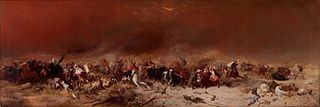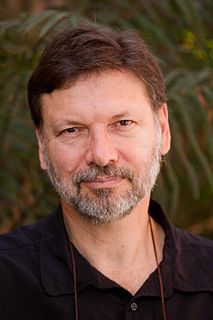Related Research Articles

Admiral Arthur Phillip was an English Royal Navy officer and the first Governor of New South Wales who led the British settlement and colonisation of Australia. He established a British penal colony that later became the city of Sydney, Australia.

The history of Australia is the story of the land and peoples of the continent of Australia. Aboriginal Australians first arrived on the Australian mainland by sea from Maritime Southeast Asia between 40,000 and 70,000 years ago, and penetrated to all parts of the continent, from the rainforests in the north, the deserts of the centre, and the sub-Antarctic islands of Tasmania and Bass Strait. The artistic, musical and spiritual traditions they established are among the longest surviving such traditions in human history.

The maritime European exploration of Australia consisted of several waves of white European seafarers that sailed the edges of the Australian continent. Dutch navigators were the first Europeans known to have explored and mapped the Australian coastline. The first documented encounter was that of Dutch navigator Willem Janszoon, in 1606. Dutch seafarers also visited the west and north coasts of the continent, as did French explorers.

The First Fleet was the 11 ships that departed from Portsmouth, England on 13 May 1787 to New South Wales, the penal colony that became the first European settlement in Australia. The First Fleet consisted of two Royal Navy vessels, three store ships and six convict transports, carrying between 1,000 and 1,500 convicts, marines, seamen, civil officers and free people, and a large quantity of stores. From England, the Fleet sailed southwest to Rio de Janeiro, then east to Cape Town and via the Great Southern Ocean to Botany Bay (Australia), over the period of 18-20 January 1788, taking 250 to 252 days from departure to final arrival. During the period 25-26 January 1788 the fleet moved from Botany Bay to present-day Sydney.
John Davis McCaughey was an Irish-born Australian academic theologian, Christian minister, university administrator and the 23rd Governor of Victoria from 1986 to 1992.

The history of Australia from 1788 to 1850 covers the early colonial period of Australia's history, from the arrival in 1788 of the First Fleet of British ships at Sydney, New South Wales, who established the penal colony, the scientific exploration of the continent and later, establishment of other Australian colonies. European colonisation created a new dominant society in Australia in place of the pre-existing population of Aboriginal Australians.
Dennis Patkin Altman is an Australian academic and gay rights activist.
Dr Brenda Mary Niall is an Australian biographer, literary critic and journalist. She is particularly noted for her work on Australia's well-known Boyd family of artists and writers. Educated at Genazzano FCJ College, in Kew, Victoria, and the University of Melbourne, Niall began writing during her time as Reader in the Department of English at Monash University.
Kenneth Stanley Inglis, was an Australian historian.

Bernard William Smith was an Australian art historian, art critic and academic, considered the founding father of Australian art history, and one of the country's most important thinkers. His book Place, Taste and Tradition: a study of Australian art since 1788 is a key text in Australian art history, and influence on Robert Hughes. Smith was associated with the Communist Party of Australia, and after leaving the party remained a prominent left-wing intellectual and Marxist thinker. Following the death of his wife in 1989, he sold much of their art collection to establish, the Kate Challis RAKA, one of the first prizes in the country for Indigenous artists and writers.
Alan George Lewers Shaw was an Australian historian and author of several text books and historiographies on Australian and Victorian history. He taught at the University of Melbourne and the University of Sydney, and was Professor of History at Monash University from 1964 until his retirement in 1981.
Glyndwr Williams has been Professor of History at Queen Mary, University of London since 1974 and has specialized in this history of exploration and the history of Europe overseas. He was appointed a professor emeritus of the University of London in 1997.

Edward Duyker is an Australian historian, biographer and author born in Melbourne.

John Bradley Hirst, was an Australian historian and social commentator. He taught at La Trobe University from 1968 until his retirement in 2006, edited Historical Studies—Australia's leading historical journal—from 1977 to 1980, and also served on the boards of Film Australia and the National Museum of Australia. He has been described as an "historian, public intellectual, and active citizen". He wrote widely on Australian history and society, publishing two well-received books about colonial New South Wales. Hirst also frequently published opinion pieces in the media.
Richard Laurence Broome, is an Australian historian, academic, and emeritus professor of history at La Trobe University, Melbourne. He is known as an authority on Aboriginal history in Australia.
David Frankel is Emeritus Professor in Archaeology, Faculty of Humanities and Social Sciences, Department of Archaeology and History at La Trobe University.
Clare Alice Wright, is an American Australian historian, author and broadcaster. She is a Professor of History at La Trobe University, and was the winner of the 2014 Stella Prize. Wright has worked as a political speechwriter, university lecturer, historical consultant, and radio and television broadcaster and podcaster.
Harriet Edquist is an Australian curator, and Professor of Architectural History in the School of Architecture and Design at RMIT University in Melbourne. Born and educated in Melbourne, she has both published widely on and created numerous exhibitions in the field of Australian architecture, art and design history. She also contributes to the production of Australian architectural knowledge as editor of the RMIT Design Archives Journal and is a member of the Design Research Institute at RMIT University.
References
- ↑ "Botany Bay: The Real Story". The Sydney Morning Herald. 22 February 2011. Retrieved 7 August 2018.
- ↑ Etherington, Norman. "Alan Frost: Botany Bay" . Retrieved 7 August 2018.[ dead link ]
- ↑ Neville, Richard (Autumn 2015). "More than a touch of Frost" (PDF). SL Magazine. 8:1: 26–27.